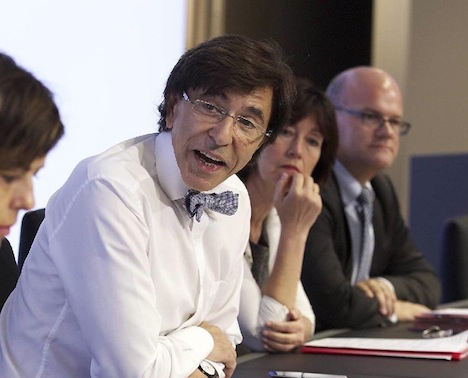
At the heart of the tragic jihadist assault on Brussels this week lies what economics and political scientists know as a collective action problem.![]()
![]()
Within the hollowed-out central state of Belgium, virtually no one wants to foot the bill for the kind of counter-terrorism, security and police investigation operations that Brussels needed to avert Tuesday’s horrific simultaneous airport and subway attacks. The European Commission, which calls Brussels home, has neither the power nor the inclination to provide a supranational layer of security to the city.
Brussels, a majority French-speaking city, is its own region, though it lies completely outside the borders of the left-leaning, French-speaking Wallonia. Meanwhile, the more economically vibrant Flemish-speaking Flanders has, as a condition for keeping the Belgian union together for the past half-century, increasingly demanded more regional powers from both Wallonia and Brussels.
No one — at the European level, at the national level or at either of the Walloon or Flemish regional level — has a proper incentive to fund what’s obviously become a disproportionate security cost for Brussels, in particular (and not, say, Antwerp or Ghent or Charleroi).
* * * * *
RELATED: Is Belgium destined for breakup after
another inconclusive vote?
* * * * *
While there are obviously many reasons for Tuesday’s terror attacks, it’s no surprise that Brussels recurs as the setting for jihadist attacks. Radical Islamists in the Molenbeek community, now an infamous byword for jihadist agitation in Europe, were central to planning the 2004 Madrid attacks, last November’s attacks in Paris and, now, the terrorist strike that Belgian authorities feared four months ago — and that forced Brussels itself into a four-day lockdown as police forces tried to stymie a terrorist plot last November.
Just four months after the Paris attacks, planned from Brussels, brought the Belgian capital to a standstill for 96 hours, and just four days after Belgian police, at long last, captured Salah Abdeslam, the remaining suspect in last year’s Paris attacks, Belgian authorities were already on high alert.
That didn’t matter. Tragedy still struck. Continue reading It’s time for Flanders to put up or shut up… and leave
